Spotify offers several social features to connect with friends, including following each other, making your playlists public, displaying recently played artists, collaborative playlists, etc. You can even see what your friends are currently listening to in real time. However, there are times when you might want more privacy. For this purpose, this guide covers four methods to enjoy Spotify privately: make your profile and playlists private, activate a private session to hide your listening activity, and achieve complete listening privacy.
On your Spotify profile, you can see your top artists and tracks of the month (desktop only, and only visible to you), your public playlists, recently played artists, and your followers/following lists. Other users, however, see a different version of your profile, and you have control over what’s visible to them. This guide explains how to access your profile and adjust its privacy settings.
Extra tip: To view another user’s profile, simply click their name.



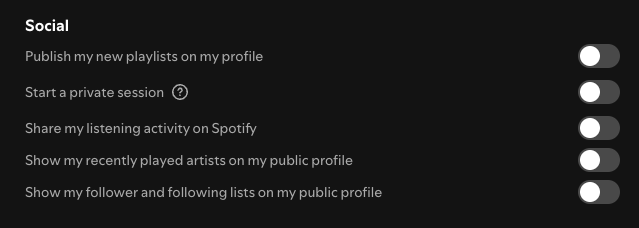
Spotify offers two main ways to manage playlist privacy: making a playlist private and removing it from your profile. By default, new playlists are public and appear on your profile. You can disable this default setting in the Spotify desktop app by turning off “Publish my new playlists on my profile.“
Remember, even private playlists can be shared via a direct link.



Spotify’s Private Session lets you listen without sharing your activity with friends or followers. While active, your recently played artists won’t appear on your profile, and friends won’t see your current listening tracks in their Friend Activity feed. A Private Session automatically end after 6 hours or when you restart the Spotify app.

Private Sessions are available on the Spotify mobile and desktop apps, but not the web player.

Click your profile picture in the top right corner and select “Private session.”

Spotify Premium allows downloading music for offline listening. However, this downloaded content is still tracked by Spotify and will be reflected in your listening activity once you reconnect to the internet.
To truly listen privately and prevent your activity from being recorded by Spotify, you can download Spotify songs and playlists as local files (such as MP3s) using a professional downloader like Pazu Spotify Converter. This allows you to play the music with any media player, ensuring it won’t appear in your Spotify listening history or statistics.
Pazu Spotify Converter enables both Spotify Free and Premium users to download tracks, playlists, and albums for offline use. It converts Spotify music to various formats, including MP3, M4A, AIFF, WAV, FLAC, and AAC. This tool saves Spotify tracks with lossless audio quality and preserves all ID3 tags. Once downloaded, you can transfer the songs to any compatible device for offline enjoyment, giving you full control over your music collection.
Key features of Pazu Spotify Converter:
Follow this guide to download Spotify music and enjoy them offline on any device.
Download, install, and run Pazu Spotify Converter on your Mac or Windows. Log in to your Spotify account with the built-in web player.
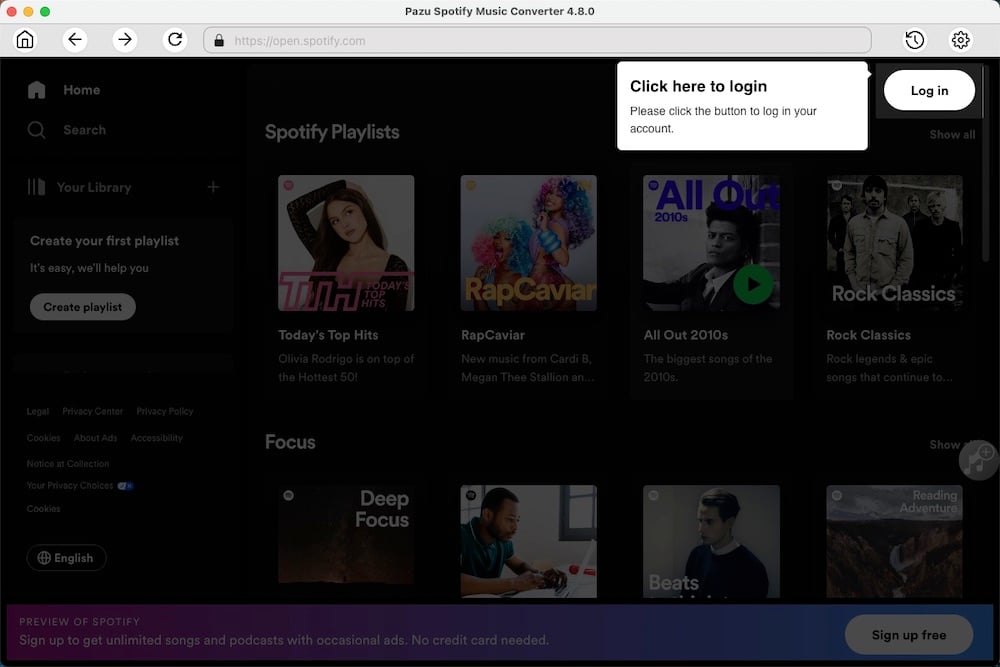
Click the gear icon on the top right corner. Here you can select the output format (AUTO[M4A], MP3, AAC, FLAC, WAV, or AIFF), choose output audio quality, customize the output path, organize the output files in various ways, rename output files, and more.
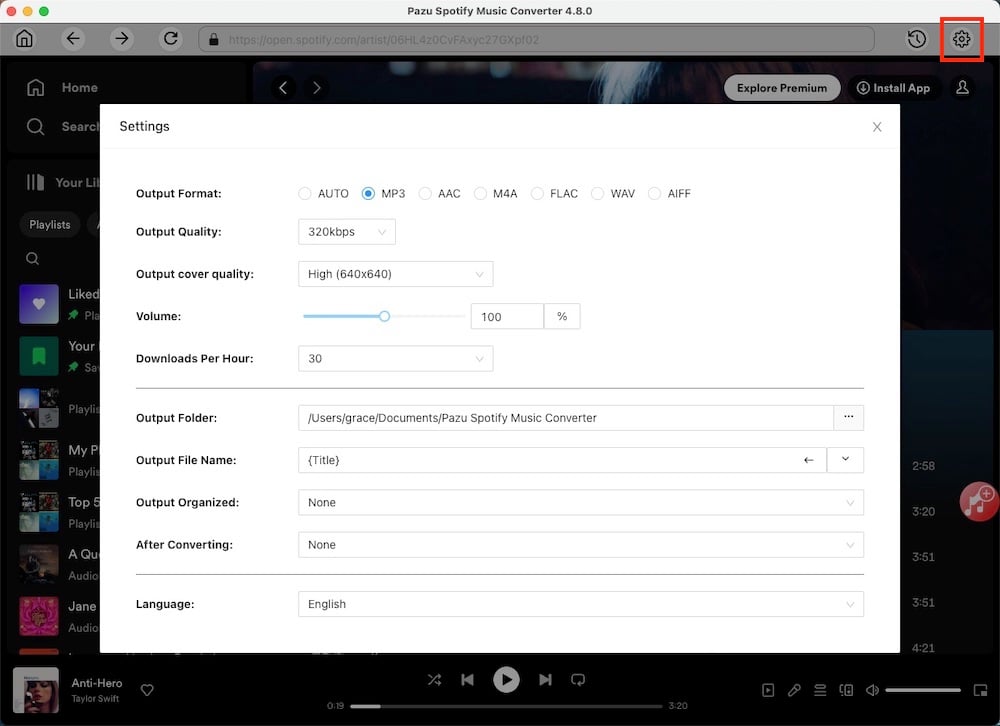
Use the integrated Spotify web player to search the songs, albums, or playlists, you want to download. Click the Add to List button to load all songs in the album or playlist.
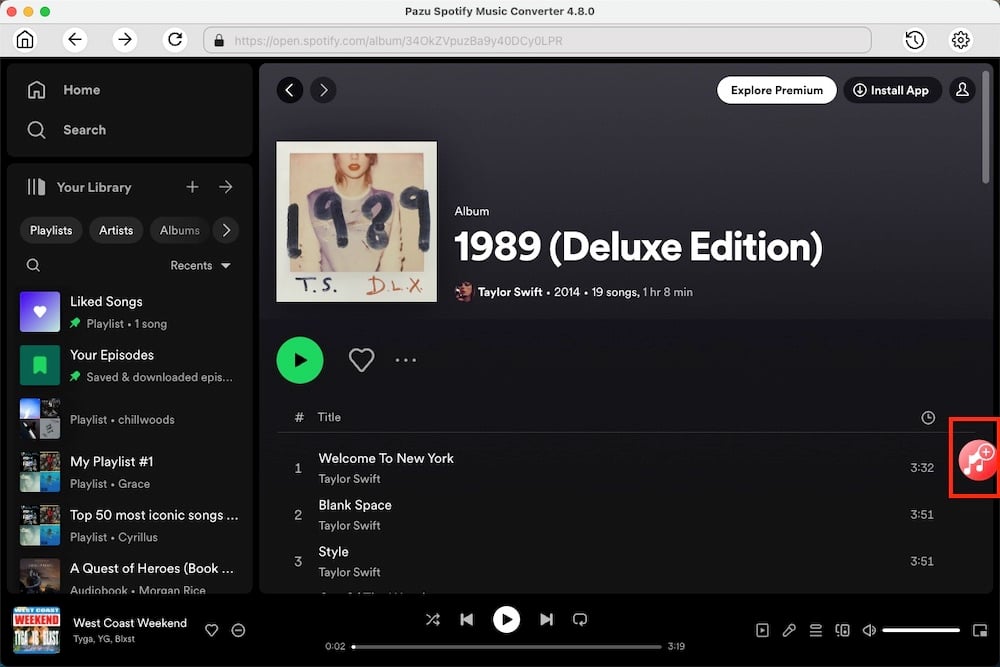
You can download individual songs or batch-convert the entire playlist. Uncheck those songs you don’t want. Click the Convert button to start downloading the Spotify songs to your local computer.
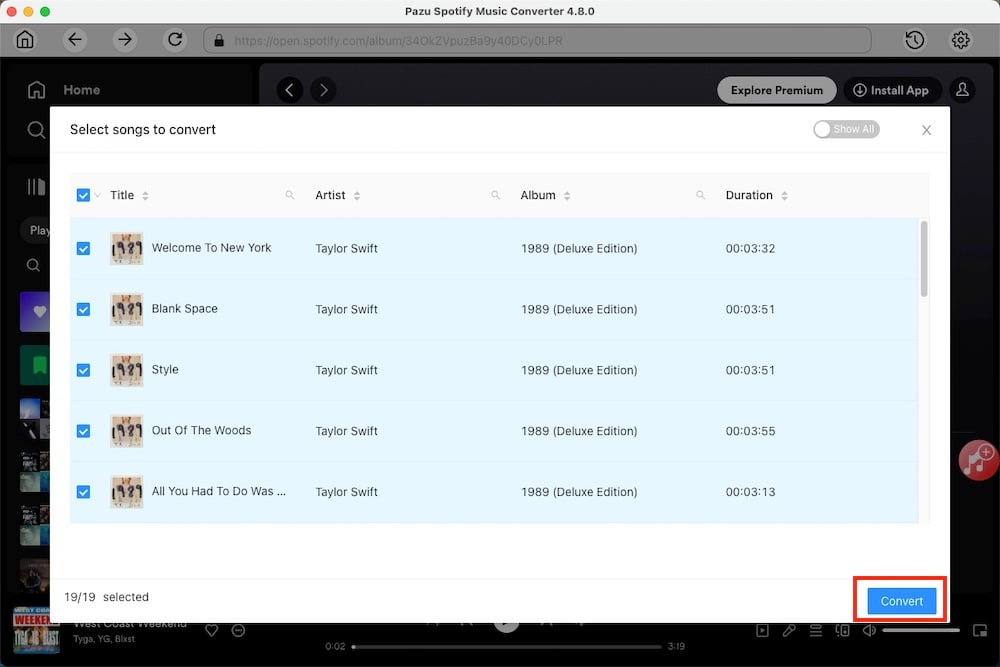
Once the conversion is done, you can find your Spotify songs as local files by clicking the folder button or directly going to the output folder you customized in the previous step.
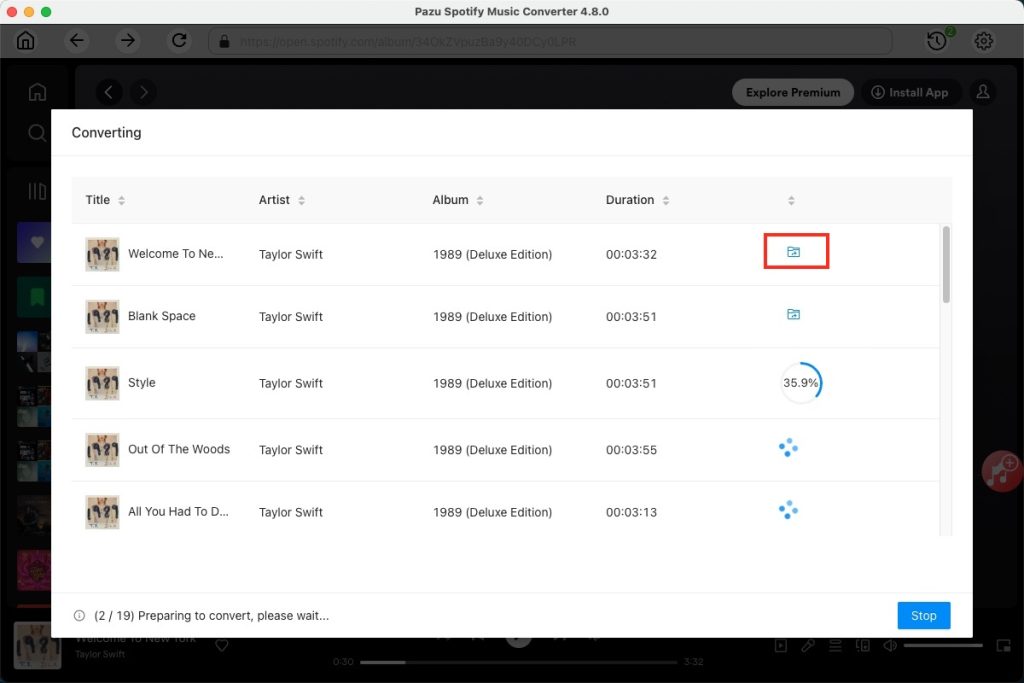
Note: The free trial version of Pazu Spotify Converter enables you to convert the first three minutes of each song. You can remove the trial limitation by purchasing the full version.

Download and convert any Spotify songs, albums, playlists to MP3/M4A etc.